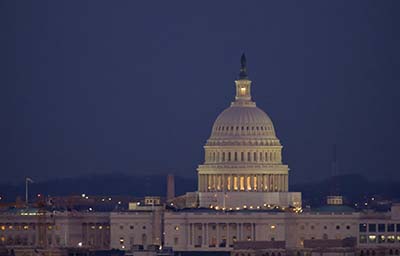
CREF Policy Update Jan. 6, 2022

Commercial and multifamily developments and activities from MBA relevant to your business and our industry.
2021 Year in Review
MBA’s advocacy played a key role in helping the $4 trillion commercial real estate finance industry weather and recover from the worst impacts of the COVID-19 pandemic. MBA helped remove barriers lenders were facing when working with borrowers affected by the pandemic. Additionally, MBA’s commercial/multifamily policy team hosted 120 virtual events with 260 speakers, serving over 5,500 members and providing critical updates on the industry’s most pressing issues.
We thank you for your membership and continued partnership.
CREF LEGISLATIVE WINS
- MBA secured key provisions in the American Rescue Plan, including:
- $21.55 billion to the U.S. Department of the Treasury for Emergency Rental Assistance (ERA) to cover rent, rent arrearages, utilities, home energy costs, arrearages for utilities and energy costs, and other housing-related expenses;
- $100 million for housing counseling services; and
- Targeted business assistance, including $25 billion for restaurant grants, $15 billion for Small Business Administration (SBA) Economic Injury Disaster Loans (EIDL), $7.25 billion in Paycheck Protection Program (PPP) loans, and $1.25 billion for shuttered venues.
- MBA secured introduction of the Adjustable Interest Rate (LIBOR) Act, which facilitates the transition away from the London Interbank Offered Rate (LIBOR).
- The legislation targets contracts with insufficient fallback provisions to minimize unnecessary litigation risk when LIBOR is no longer available and a replacement index must be selected. The bill passed the House on a 415–9 vote, and will now move to the Senate, where MBA will continue to advocate for its passage.
- MBA successfully prevented a lapse of the National Flood Insurance Program (NFIP) through the inclusion of the program’s extension in the multiple government funding bills known as Continuing Resolutions.
MBA continues to advocate for a long-term reauthorization of the program as well as modernization of the NFIP to increase the number of properties insured against the perils of storms and flooding, including an exemption from the mandatory purchase requirement for commercial properties.
CREF POLICY WINS
- MBA secured the first-ever federal Rental Assistance Program.
- We helped renters affected by the pandemic get the relief they needed to stay in their homes – without incurring a backlog of unpaid back rent – by successfully advocating for more than $45 billion in rental assistance. The assistance also helped multifamily property owners and the lenders that finance multifamily housing.
- MBA secured CARES Act Troubled Debt Restructuring (TDR) relief for life companies.
- We successfully advocated for regulators at the National Association of Insurance Commissioners (NAIC) to adopt the congressional extension of CARES Act TDR relief in the NAIC’s life company accounting and risk-based capital standards.
- MBA defeated state rent control and split-roll tax proposals.
- We worked with the California MBA and other trade associations to prevent the worsening California housing crisis. If not defeated, these proposals would have triggered hundreds of different local rent control provisions and led to a dramatic increase in commercial and multifamily property taxes.
- MBA stopped harmful proposals to tax private equity in New York.
- An MBA-led coalition of trade associations successfully opposed legislation that would have imposed a tax and recording requirement on mezzanine debt and preferred equity.
- MBA updated the Davis-Bacon labor wage rate threshold for the first time in 40 years.
- In response to MBA advocacy efforts, in December 2020, the Department of Labor Wage and Hour Division increased the Davis-Bacon threshold from $1 million to $2.5 million for split-wage decisions for FHA-backed multifamily construction projects – the first update in 40 years.
- MBA won a permanent lowering of risk-based capital (RBC) requirements for life insurance companies.
- After a years-long advocacy effort, MBA secured a reduction in RBC factors for direct life company real estate investments from 15% to 11%, and for indirect investments from 23% to 13%.
- MBA set the stage for future developments on climate-change risk and ESG.
In response to requests for input from the U.S. Securities and Exchange Commission (SEC), the Federal Housing Finance Agency (FHFA), the Federal Insurance Office (FIO), and the New York Department of Financial Services (DFS), MBA communicated a set of principles for possible future regulatory action on climate-change risk and environmental, social, and governance (ESG).
In 2021, MBA members – through the Mortgage Action Alliance (MAA), MORPAC, and grassroots/grasstops engagement – stepped up their involvement and helped deliver MBA’s advocacy message.
MORTGAGE ACTION ALLIANCE (MAA)
- MAA tripled its active membership with more than 63,000 members.
- Nearly 25,000 MAA members sent more than 82,500 letters to elected officials urging action on key issues.
IN-DISTRICT MEETINGS
- Over 400 industry advocates from 38 states attended MBA’s virtual National Advocacy Conference (NAC) in May 2021 and participated in 250 virtual official constituent meetings with their senators and representatives.
The Advocacy in August campaign resulted in more than 50 MAA members strengthening relationships with elected officials to discuss crucial tax priorities.
MBA’s POLITICAL ACTION COMMITTEE (MORPAC) CELEBRATED 50 YEARS OF ADVOCACY
- Raised more than $1.4 million in this election cycle – a record in an off-election year.
- 25 professional organizations (including 12 new companies) ran company campaigns nationwide, accounting for 54% of total funds raised; MORPAC’s fourth annual Action Week secured 10 concurrent company campaigns, 461 donors, and raised $230,000 in one week.
MORPAC is a top 10 nationally ranked PAC both in total dollars raised by individuals and total dollars contributed to federal candidates and committees, according to the Federal Election Commission (FEC).
